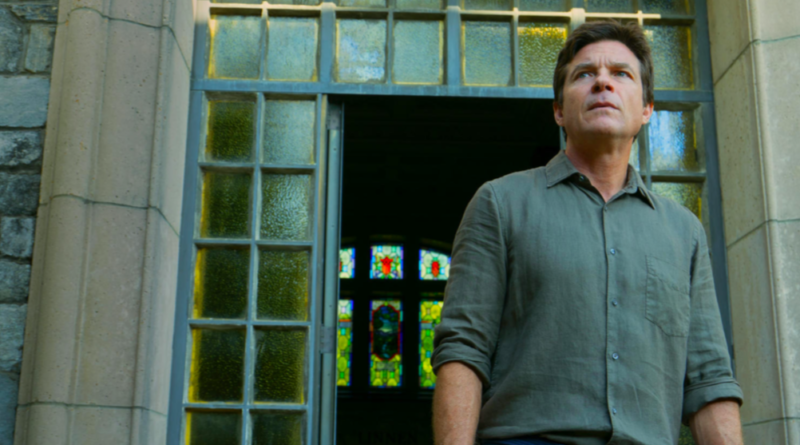COMMENTARY: ‘Ozark’ works so well because actions have consequences
Photo: Jason Bateman stars in Ozark on Netflix. Photo courtesy of Tina Rowden / Netflix © 2022 / Provided by Netflix Media Center with permission.
SPOILERS AHEAD!
Now that Netflix’s Ozark has wrapped up its fourth and final season, devotees of the dark, violent show can look back at the dozens of episodes and start to ask the ultimate question: Why did this drama work so well? Sure, the performances from Laura Linney, Jason Bateman, Julia Garner and the company are exquisite. Yes, the progression of the series felt organic and appropriate, and the story never ran out of steam, even if at times the convoluted nature of the plot felt like it was ready to derail.
But the real reason Ozark will be remembered as one of the best television shows since Breaking Bad and The Sopranos is because actions had consequences on the series. Although there was a lot of murdering, drug-dealing, back-stabbing and family fights, they never became overwhelming or brushed off as trite. Every disturbance within the series was met with a realistic consequence, and the characters had to deal with this perpetually changing “new normal.” When a higher-up in the Navarro drug cartel was murdered, characters asked questions, and grudges were formed. He was not going to be easily forgotten. When a local opium grower was killed, locals took notice. When a sheriff went missing, billboards were displayed on the highway, and the acting sheriff started investigating. Everything and everyone mattered, and each new episode added to the hornets’ nest of problems. This made Ozark complex, but also authentic.
When watching Ozark’s final season, it becomes somewhat obvious that the Byrde family, led by Marty (Bateman) and Wendy (Linney), are never going to escape from the clutches of the cartel. Their end game is perpetually put off into the future, with that horizon always traveling farther and farther away.
Deep down they are terrified of where their journey might lead, but they also are experts at playing the game. And, even though they would never admit it, they sometimes enjoy playing the game, even if it comes at the expense of their family’s safety. This is perhaps most obvious with the Wendy character, who makes some questionable decisions in the third and fourth seasons that are downright scary, and this moral bankruptcy distances her from her son, Jonah (Skylar Gaertner). In a less-thought-out series, Jonah would fall in line with the family, or his angst would be dealt with in one episode, but in Ozark there is a permanent wedge between mother and son, which is entirely appropriate given the circumstances of what is happening to the Byrde family. They are not meant to function properly, and having Jonah question his parents’ actions, in particular his mother’s decision to have her brother killed, is a believable consequence to an unbelievable set of occurrences.
Look at the character of Special Agent Maya Miller (Jessica Frances Dukes), one of the best roles on the show. Her working relationship with Marty is like a chess match (a metaphor that is used in the series), and she carefully weighs each decision she makes. During her climatic encounter with the cartel, she needs to find a babysitter for her newborn child. When she gets burned by the Byrdes, she independently moves in on Omar Navarro (Felix Solis). These are actions of real people, not constructed characters for a TV show.
Almost everything dealing with Ruth (Garner) is based on her history, which she is trying to outrun. She is determined to change the Langmore name once and for all. Her criminal record and its eventual expulsion, her killing of Javi Elizondro (Alfonso Herrera) to avenge her cousin Wyatt (Charlie Tahan), her dealings with Darlene Snell (Lisa Emery) — each of these elements is dealt with careful consideration as if the actions were playing out in the real world.
Ozark is not a perfect show, and most of its diehard devotees know there are certain characters or plot points that are true head-scratchers. It is difficult to get behind the Clare Shaw character (Katrina Lenk). Having a major pharmaceutical partner involved feels too far-fetched. Never returning to Maya Miller in the final episodes feels wrong; even Sam Dermody (Kevin L. Johnson) receives more of a sendoff. Yes, the Jim Rattelsdorf (Damian Young) character is too convenient, always there to rescue the Byrdes and find a political solution to their problems.
These are minor quibbles. At its heart, Ozark stays focused on Wendy, Marty and Ruth — and the inclusions of Charlotte and Jonah are most welcome as well. The series wants to explore whether a family can survive a global money-laundering and drug-dealing scheme that has violence at every turn. As Jonah’s final gunshot proves, the answer on whether the Byrdes survive is left to the viewer.
The Byrde family may have survived to a point, but they are destroyed within. Over four seasons of TV, they became scary humans who in their quest for survival were willing to sacrifice others along the way. Some people may rationalize their behavior as Darwinian, while others may call them monsters who exploited the locals of the Ozark region for their financial betterment. In the end, Ozark proves a TV show’s success is based on the simple fact that actions should have consequences.
By John Soltes / Publisher / John@HollywoodSoapbox.com
Ozark’s four seasons are now available on Netflix. Click here for more information.

